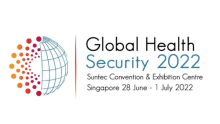Learning and knowledge sharing are fundamental to the LHSS Project. We invite you to search LHSS knowledge products and resources for the latest approaches, insights, and learning in the field of integrated health systems strengthening.
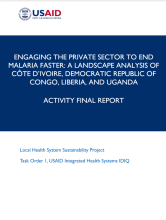
This report describes key private sector players and their types of engagement in malaria programming in Cote d’Ivoire, Democratic Republic of Congo, Liberia, and Uganda.
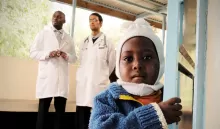
What do Lao PDR, Malaysia, and Kenya have in common? All three countries have strengthened their budget structures and processes to enable good health budget execution. Their experiences hold valuable lessons for others striving to increase budget execution and unlock significant resources for health.
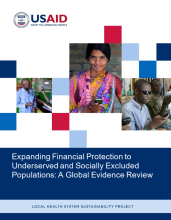
This report provides results and lessons learned from the LHSS Project’s review of existing literature on expanding financial protection to underserved and socially excluded populations in LMICs.
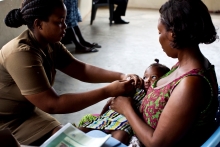
Late last year, health sector practitioners from eight countries met to tackle the issue head-on as participants in the Joint Learning Network Health Budget Execution Learning Exchange. They made meaningful progress.
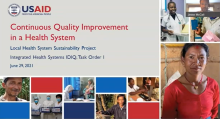
In this webinar, we discuss promising practices for establishing a learning culture. Dr. Malangizo Mbewe, Acting Director, Quality Management Department, Ministry of Health and Population in Malawi, also shares his experience establishing systems to support continuous quality improvement.
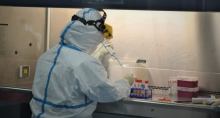
By now, much has been written about the egregious global inequities in COVID-19 vaccine distribution. But less has been said about another inequity that holds serious implications for global health: the disparities in genomic sequencing capacities and capabilities worldwide.
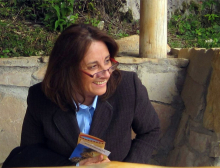
She’s a big thinker, with an illustrious background. Midori de Habich was Peru’s minister of health and chair of the South American Council of Health from 2012-2014. She has served on various WHO working groups and missions and led USAID-funded projects in Peru. Now, she is applying her expertise in financial protection and population coverage to LHSS as the project’s technical director.
Experts from LHSS partner Avenir Health and a representative from the Ethiopia Ministry of Health presented on the Spectrum modeling suite, a free software package designed to support integrated strategic planning over a range of health areas, including HIV, tuberculosis, malaria, maternal and child health, and family planning.
This Year 3 Quarter 1 Report (Oct-Dec 2021) was prepared for USAID and provides a progress update for all annual work plan activities.

This Practice Spotlight brief describes outcome harvesting, a monitoring, evaluation, research, and learning approach that can help tease out the specific impacts of HSS interventions conducted in complex environments, where many factors may influence an outcome.
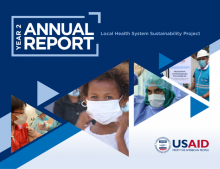
In Year 2, LHSS supported the work of USAID missions in 17 countries, with new activities launched in Bangladesh, Madagascar, Peru, and Timor-Leste. We also began work with the USAID Bureau for Latin America and the Caribbean and we continued to expand our work with USAID Washington to enrich the global knowledge base on health system sustainability.
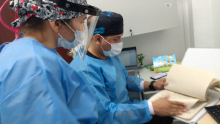
While securing adequate funding to improve quality of care is a challenge for many countries, some have been successful implementing financial mechanisms to incentivize high-quality care delivery, reducing fraud, waste, and abuse.
In this webinar, we’ll listen to experiences and lessons from health system strengthening activities that have used two promising approaches: contribution analysis and outcome harvesting.
This Practice Spotlight brief describes contribution analysis, a monitoring, evaluation, research, and learning approach well-suited for examining the effects of HSS interventions conducted in complex environments, where the causes of change are multifaceted and difficult to trace.

